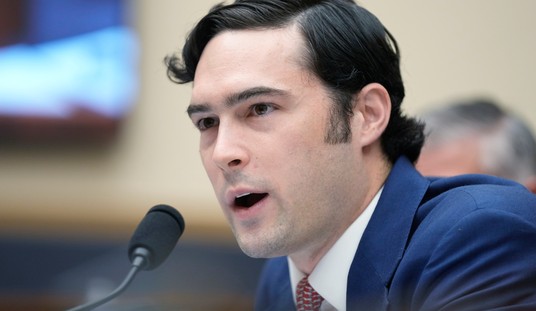In a speech at Stanford University on April 21st, former President Barack Obama assailed social media companies for permitting disinformation on their platforms. Obama insisted democracy itself is at stake should the trend continue.
The speech, covered with expected laudatory unquestioning worship by the Washington Post and others, outlined a vision of increased governmental supervision of social media companies.
Now, some companies have been taking the next step in managing toxic content, experimenting with new product designs that, to use just one example, add friction to slow the spread of potentially harmful content. And that kind of innovation is a step in the right direction. It should be applauded, but I also think decisions like this shouldn’t be left solely to private interests. These decisions affect all of us, and just like every other industry that has a big impact in our society, that means these big platforms need to be subject to some level of public oversight and regulation.
The notion of governmental oversight, i.e., monitoring and censorship, of social media companies should alarm all people regardless of political persuasion. A government incapable of knowing a US Army skydiving team exhibition at a Washington Nationals game was not a possible attack on the US Capitol somehow having the wherewithal to correctly and without bias monitor social media sites for potentially damaging falsehoods … um, yeah.
Ironically, even as he advocated for governmental monitoring of social media, Obama pointed out what can and does happen in such a scenario.
Countries like China and Russia have already tried to paint democracy as unworkable, and authoritarianism is the only path to order. China’s built a great firewall around the Internet, turning it into a vehicle for domestic indoctrination and surveillance. And now, they’re exporting some of those same technologies, those same with similar product designs to other countries.
In Russia, Putin has weaponized ethnonationalism through disinformation, waging hate campaigns against domestic opponents, delegitimizing democracy itself. And of course, he’s escalated such efforts as part of his war in Ukraine.
Equally ironically, Obama not only pointed out the only effective disinformation counterattack but gave it praise, contradicting himself while doing so.
I’m pretty close to a First Amendment absolutist. I believe that in most instances the answer to bad speech is good speech. I believe that the free, robust, sometimes antagonistic exchange of ideas produces better outcomes and a healthier society.
No Democratic government can or should do what China, for example, is doing, simply telling people what they can and cannot say or publish while trying to control what others say about their country abroad. And I don’t have a lot of confidence that any single individual or organization, private or public, should be charged or do a good job at determining who gets to hear what.
Oh, but we could totally trust Valerie Jarrett to make these kinds of decisions.
While it’s easy to dissect the flaws in Obama’s position and how his proposals would directly lead to even greater censorship of conservative thought than is presently the case, he also said something quite remarkable in that he was 100 percent correct.
Now it’s true, tech companies and social media platforms are not the only distributors of toxic information. I promise you; I spend a lot of time in Washington, right?
In fact, some of the most outrageous content on the Web originates from traditional media.
So he’s the one subscriber to CNN+.
But hey — democracy is at stake! No, really.
Each of us, whether we work at a tech company or consume social media, whether we are a parent, a legislator, an advertiser on one of these platforms, now’s the time to pick a side. We have a choice right now. Do we allow our democracy to wither or do we make it better? That’s the choice we face, and it is a choice worth embracing.
Tell us more, big guy.
A regulatory structure, a smart one, needs to be in place, designed in consultation with tech companies, and experts and communities that are affected, including communities of color and others that sometimes are not well represented here in Silicon Valley, that will allow these companies to operate effectively while also slowing the spread of harmful content. In some cases, industry standards may replace or substitute for regulation, but regulation has to be part of the answer.
Obama did hit on a hard truth. No one knows how social media algorithms work. Well, we do, but whether censorship affecting the right 99.44 percent of the time stems from automated data sifting or deliberate acts by purple-haired whackadoodles at Facebook and Twitter … okay, we know that as well.
Beyond that, tech companies need to be more transparent about how they operate. So much of the conversation around disinformation is focused on what people post. The bigger issue is what content these platforms promote. Algorithms have evolved to the point where nobody on the outside of these companies can accurately predict what they’ll do, unless they’re really sophisticated and spend a lot of time tracking it. And sometimes, even the people who build them aren’t sure. That’s a problem.
In a democracy, we can rightly expect companies to subject the design of their products and services to some level of scrutiny. At minimum, they should have to share that information with researchers and regulators who are charged with keeping the rest of the safe.
Those in or close to power believing that increased government oversight — or oversight period — of social media content is a preferred action plan should be chilling. We know Facebook and Twitter skew hard left and will use any excuse available to preclude free speech. We also know most people have the intelligence and common sense to discern between truth and lies. That is why sites such as RedState exist, to tell the truth and thus stand in opposition to propaganda perpetrators in MSM and government as well as those who already control the most popular social media sites.
Something to remember is that there are alternatives to Facebook and Twitter. Also, remember when MySpace, and before that AOL and CompuServe, ruled the online world. The free marketplace does an outstanding job of sorting out wheat and chaff. Neither it nor we need self-appointed saviors to rule over us poor peasants. We already have a Savior, thanks.















Join the conversation as a VIP Member